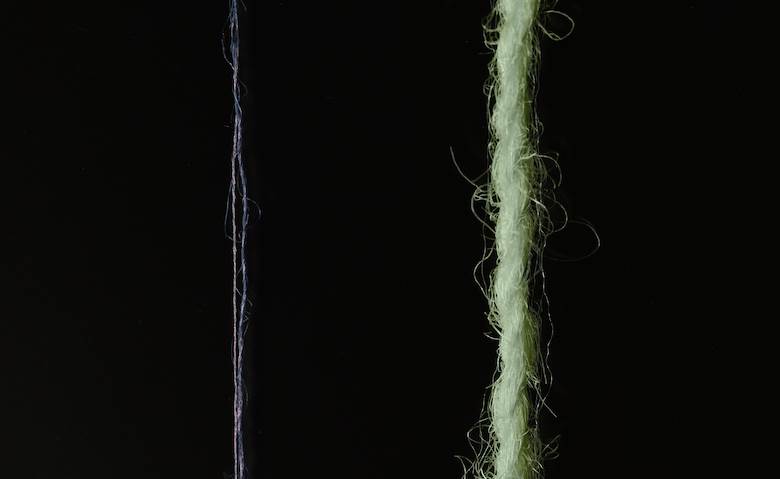Carpet wool-to-clothing breakthrough for TMC

Performance fibre developer TMC, the owner of Nuyarn spinning technology, has launched a new product, Herculan, describing it as a sustainable, durable natural fibre.
New Zealand-based TMC (The Merino Company) acquired Nuyarn in 2013 and began using its specialised technology, centred on wrapping a superfine Merino wool yarn around a nylon core, to create lightweight, durable, stretchy fabrics. It has spent three years modifying Nuyarn spinning machines and has now been able to develop a patented technology to produce Herculan as a result.
The modifications it has made mean the Nuyarn machines can now accommodate strong wool, the coarsest and most durable grade of wool fibres, measuring more than 38 microns.
Historically, this type of fibre has gone into applications such as interior textiles, flooring and upholstery, and is often called ‘carpet wool’. According to TMC, it has a low market value and in difficult economic periods is often deemed too costly to process, package and ship and much of the fibre goes to waste.
The International Wool Textile Organisation has estimated that between 40% and 50% of the global wool yield is fibre that falls into this category. TMC believes the changes it has made to Nuyarn will open the door for this type of wool to be used in apparel.
Using Nuyarn, the coarse, long, wool fibres can be drafted around a performance filament, creating Herculan. The yarn is extremely fine and, the company has said, has outperformed some of the most widely used synthetic textiles in Martindale abrasion tests.
Because of this, TMC has said it will work well in high-abrasion and high-impact zones in garments such as outerwear, trousers, socks, footwear and gloves.
In addition to durability, other performance attributes that TMC has highlighted in Herculan are high levels of comfort, efficient moisture management, fast dry times, thermal retention and odour resistance.
“We are incredibly excited to be introducing Herculan,” said chief executive, Andy Wynne. “The durability, performance, and comfort results speak for themselves. We took an underutilised and overabundant natural fibre and turned it into a durable yarn to meet the abrasion demands that only synthetic fibres could previously meet, all while increasing the natural performance benefits of wool.”
Mr Wynne said Herculan was unlike anything currently on the marketnothing like it on the market and that it would help meet the needs of consumers, who want more sustainable and durable natural fibres in their garments, while also creating new potential categories for performance and technical apparel brands.










